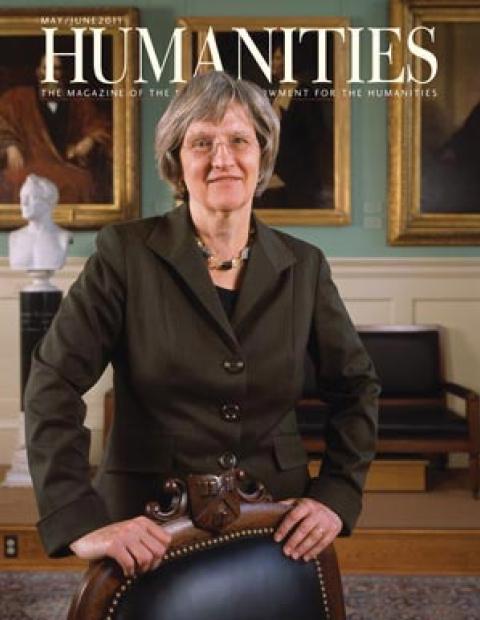How is it that our culture has studied and written and published large libraries’ worth of new books on the Civil War, and yet reading Drew Gilpin Faust, this year’s Jefferson Lecturer, is like discovering untrodden territory? Her books range from the forgotten thoughts of slavery’s apologists in the antebellum South to all the people who thought and breathed no more, the Civil War Dead. Her work calls us to attention, lest we grow dull to the shock of our own history, the shock of war and loss.
Perhaps we are to be forgiven, as simply recalling the brutality of the Civil War and the great American shame of slavery require maturity and, harder still, an emotional wherewithal that can be difficult to muster for wrongs committed more than 150 years ago. Looking at the past may be rewarding, but it is not always easy.
In an interview with Chairman Jim Leach, Faust gives us a tour of her work as a scholar before discussing her accomplishments as president of Harvard University. She recalls her inspiration as a young child to write a letter to President Eisenhower protesting the unequal treatment of black Americans. This terrific story she has also published as an essay, which we have excerpted along with fine passages from two of her books.
The heart swells more than once in this issue, next at the bravery of the young men and women who took their lives in their hands to protest the injustice of segregation in interstate travel by riding Greyhound and Trailways buses into the Deep South in 1961. The story of these Freedom Riders has been heroically told in Raymond Arsenault’s book, but it will now reach television viewers through Stanley Nelson’s superb NEH-funded documentary. Writer Amy Lifson takes us inside the delicate work of moving this great but expansive story from the page to the small screen.
Another group to challenge the reigning prejudices of race in the twentieth century was the American Communist party. Historian Michael Kazin discusses the cultural achievements and political failures of the Popular Front, finding its legacy in American films, music, and literature.
Freedom was also a major concern for the many victims of communism. David Engerman visits the Wende Museum in Los Angeles and sorts through the rubble of the Berlin Wall, finding in the debris of Eastern European culture an amazing collection preserving the artifacts of a monstrous system that expressed itself even in ordinary everyday objects.

